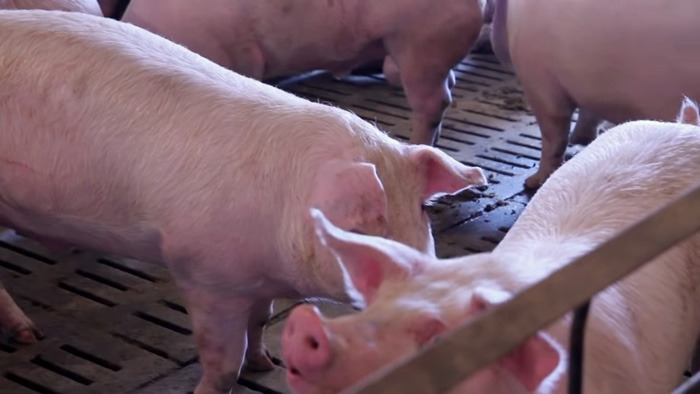The governments of Canada and Manitoba are investing $680,900 under the Canadian Agricultural Partnership to support two major projects aimed at protecting animal health and managing disease in the provincial pork industry.
“Our government is pleased to support these projects that involve a proactive approach to protecting animal health in our provincial pork industry, ensuring the quality of the industry and our ongoing competitiveness in international trade,” said Manitoba Agriculture Minister Derek Johnson. “The targeted, risk-based surveillance of these projects allows for rapid disease detection resulting in a more effective response, which in turn reduces adverse effects to the overall health, welfare and trade aspects of the sector.”
“Canadian pork producers take great care in ensuring the health of their animals,” said Terry Duguid, member of Parliament for Winnipeg South. “We know how important it is to help farmers reduce the risk of disease transmissions to keep their herds safe, protecting our environment, ensuring these businesses remain strong and remain internationally competitive. Investments like these ensure Canadian pork products continue to be internationally recognized as high-quality and sustainably produced.”
The Invasive Swine Eradication Initiative Project will help mitigate the threat of disease spread by invasive pigs, particularly the highly contagious African swine fever (ASF), to commercial herds by seeking out, corralling and euthanizing invasive swine, thereby protecting herd health and the province’s natural resources.
Manitoba is developing a draft strategy for invasive swine management and will soon seek feedback from industry, interest groups and the public.
The Manitoba High Traffic Facility Swine Disease Surveillance Project is a continuation of the governments’ efforts to address the risk of porcine epidemic diarrhea (PED) over the past seven years. It will allow more time to evaluate fully the mitigation efforts taken by the swine sector that have decreased the occurrence of PED.
Both projects contribute to a strong foundation for managing risk, which is important in building industry resilience to support the objectives of the Manitoba Protein Advantage Strategy .
“Animal diseases, like PED virus and ASF, not only have a significant economic impact, but a lasting impact on the mental health of farmers,” said Rick Préjet, chair, Manitoba Pork Council. “Reducing the risk and spread of animal disease is paramount to the long-term success of Manitoba’s hog sector, and we are delighted to be working collaboratively with the provincial and federal governments on these two projects.”
The hog sector is Manitoba’s third-most important commodity in terms of farm cash receipts, at $1.1 billion. Manitoba ranked number one in Canada with over 8.2 million hog and pig sales in 2020. Pork production in Manitoba is highly integrated – from genetics, feed manufacturing and specialized services through processing. Expansion of barns, feed mills and processing facilities is underway, with great attention to sustainability, animal welfare, food safety and quality.
To help with eradication efforts, Manitobans can report signs of invasive swine presence to local conservation officers.
For more information on invasive swine, visit manitoba.ca.
The Canadian Agricultural Partnership is a five-year, $3-billion commitment by Canada’s federal, provincial and territorial governments that supports Canada’s agri-food and agri-products sectors. This includes a $2-billion commitment that is cost-shared 60 per cent federally and 40 per cent provincially/territorially for programs that are designed and delivered by provinces and territories.





